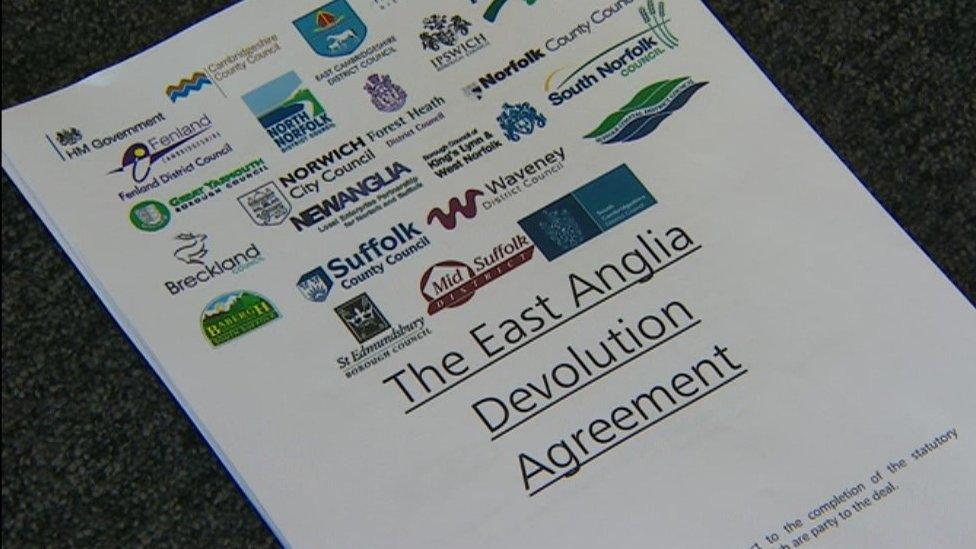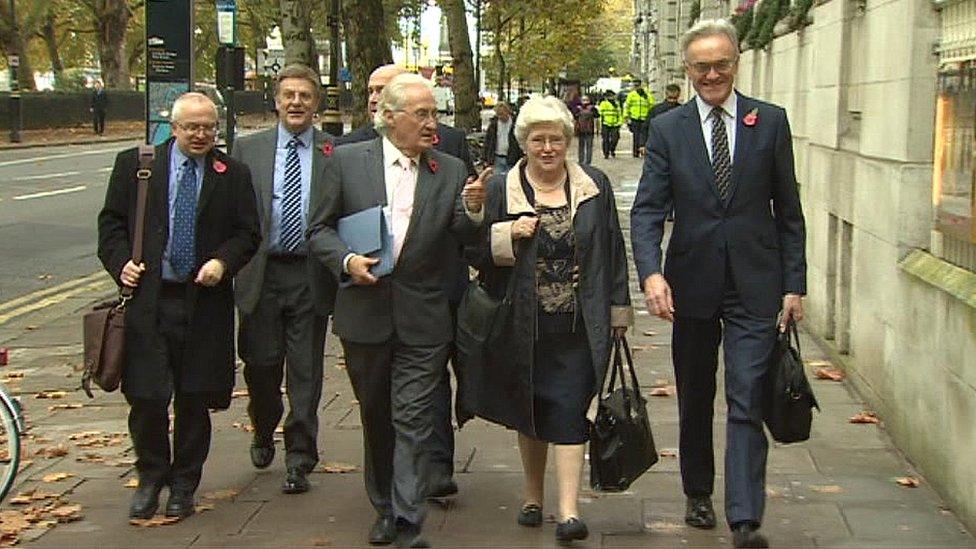Details of East Anglian devolution revealed
- Published

The agreement recognises the importance of places like the Cambridge business sector, the Norwich research park and University Campus Suffolk
We're starting to get an idea about what East Anglian devolution will look like.
The devolution agreement, published by the treasury and signed by 22 of the 23 council leaders in Norfolk, Suffolk and Cambridgeshire, outlines how the new combined authority will work and the powers of the new directly elected mayor.
The agreement stresses that there is no intention for the new authority to take existing powers from local authorities.
County, district and borough councils will continue to exist. The combined authority and its mayor will be responsible for the powers which are being devolved from Whitehall.

The Eastern Powerhouse plan is being backed by Chancellor George Osborne
These are transport, strategic planning and skills training. There is also a hint that at some stage health and social care may be added to the list.
The mayor will be chosen by voters in the three counties next May. He or she will have the power to increase business rates to fund infrastructure projects. The mayor will be answerable to a cabinet made up of nominees from the 23 local councils.
The cabinet will be able to reject any of the mayor's strategies or spending plans, but only by a two thirds majority.
As well as overseeing the building of new infrastructure (the government will give £30m a year towards this), the new mayor will be responsible for maintenance of the main road network which is currently run by the Highways Agency. He or she will also oversee all local transport with a view to bringing bus services and perhaps even train services under the one umbrella. There will also be integrated ticketing.

Devolving powers from Whitehall could help boost transport links to the region's key cities such as Norwich
The agreement says dualling the A47 Acle straight should be seen as a priority.
When it comes to strategic planning, the mayor will decide where new homes should go but it will still be left to local authorities to approve or reject the plans. But planning appeals will probably go to the mayor who may have the final say.
The new authority will be expected to deliver 69,000 new homes by 2021, and is being given an extra £175m to fund the building of mainly shared ownership housing. The agreement also talks about creating a new garden town in Fenland and West Norfolk.
The mayor and new authority will be responsible for all training programmes in the region. They will work closely with the Local Enterprise Partnerships and local colleges to focus particularly on the needs of young people and those with disabilities.

Councillors and business leaders from Norfolk and Suffolk met government officials to discuss their devolution plans
The new authority and mayor will also oversee flood defence spending in the region and try to attract private funding. There is a promise by the government in the agreement to protect the Norfolk villages of Bacton and Walcott from coastal erosion.
The agreement recognises the importance of places like the Cambridge business sector, the Norwich research park and University Campus Suffolk and it agrees to support their development.
It also announces plans for an East Anglian Productivity Commission - a national pilot which will bring together companies to share best practice and find ways of boosting the local economy.
- Published12 February 2016
- Published7 September 2015